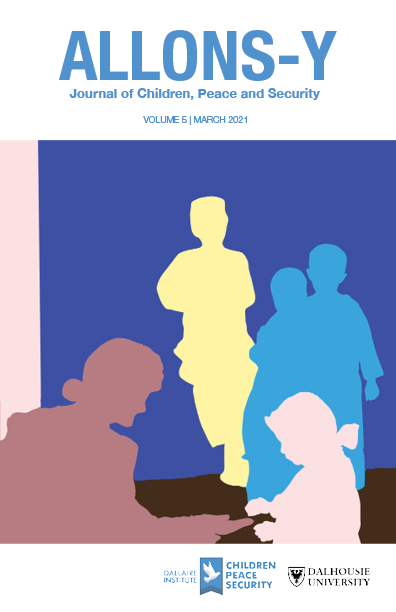Beyond the Binary: Why Gender Matters in the Recruitment and Use of Children
DOI:
https://doi.org/10.15273/allons-y.v5i0.10214Keywords:
child soldiers, children and armed conflict (CAAC), gender, sexual orientation, gender identity and expression, and sex characteristics (SOGIESC), Vancouver PrinciplesAbstract
Gender matters in conflict. Socio-cultural norms, attitudes and expectations related to gender dictate the causes, course and consequences of child soldiering. Despite international commitments, the recruitment and use of children in armed forces and groups persists. This paper summarizes existing quantitative data from the United Nations Monitoring and Reporting Mechanism, in light of complementary qualitative analysis from other sources, to highlight the ways in which gender norms can (a) drive recruitment, (b) determine roles and responsibilities, and (c) influence outcomes for children associated with armed forces or groups. The needs and experiences of girls and boys are explored, and where evidence allows, that of children of diverse sexual orientation, gender identity and expression, and sex characteristics (SOGIESC). Recommendations are made on potential actions that can further nuance the gender perspective proposed in the Vancouver Principles. Suggestions are made on how to ensure prevention and response interventions are (1) supported by consistently disaggregated data, (2) cognisant of the gender drivers behind recruitment, and (3) tailored to the distinct needs of children of diverse SOGIESC.Downloads
Published
2021-03-31
Issue
Section
Commentaries





